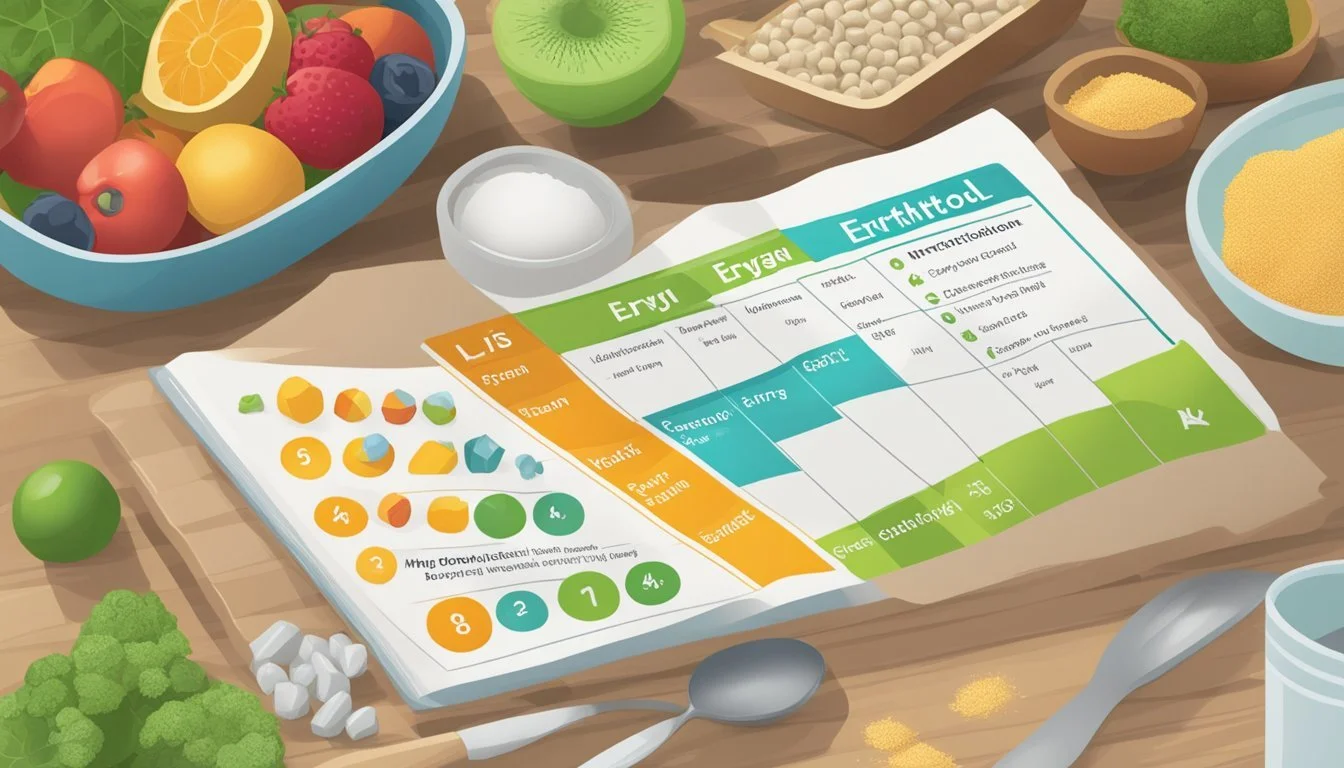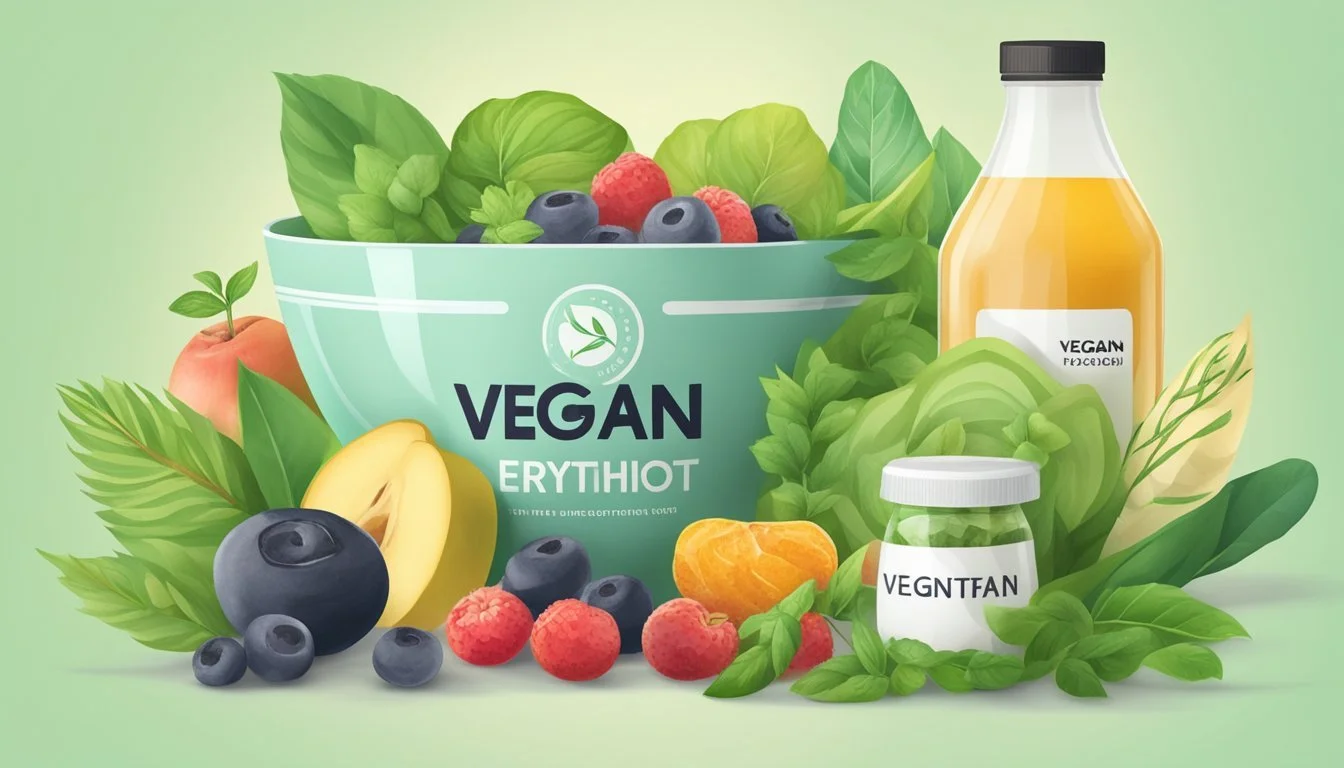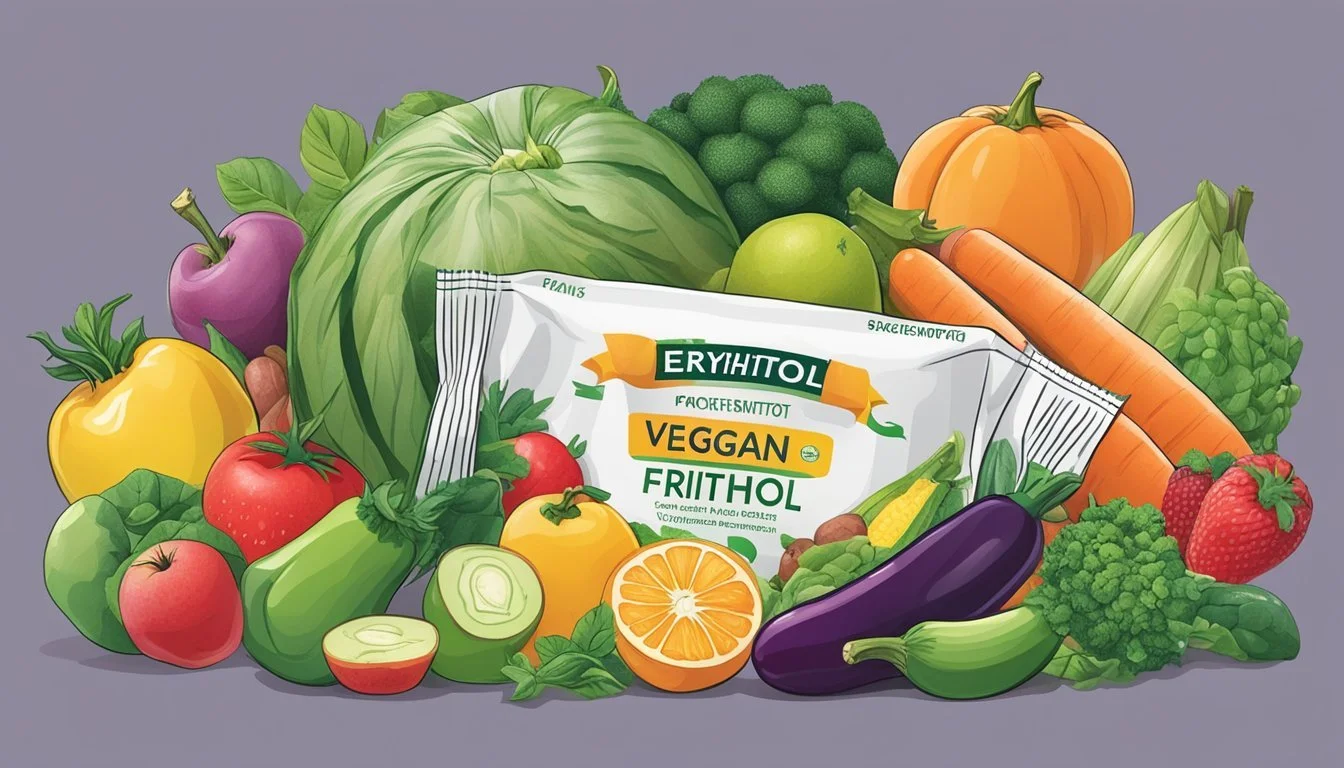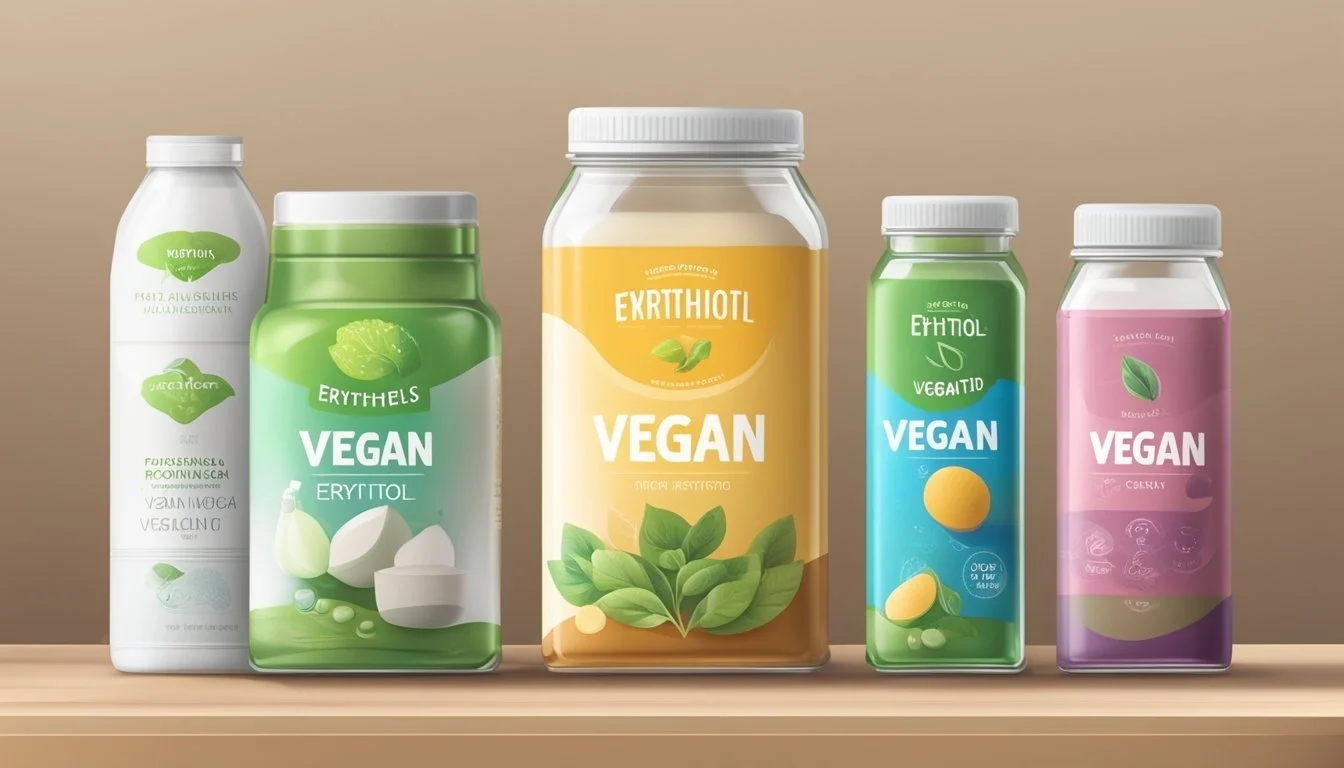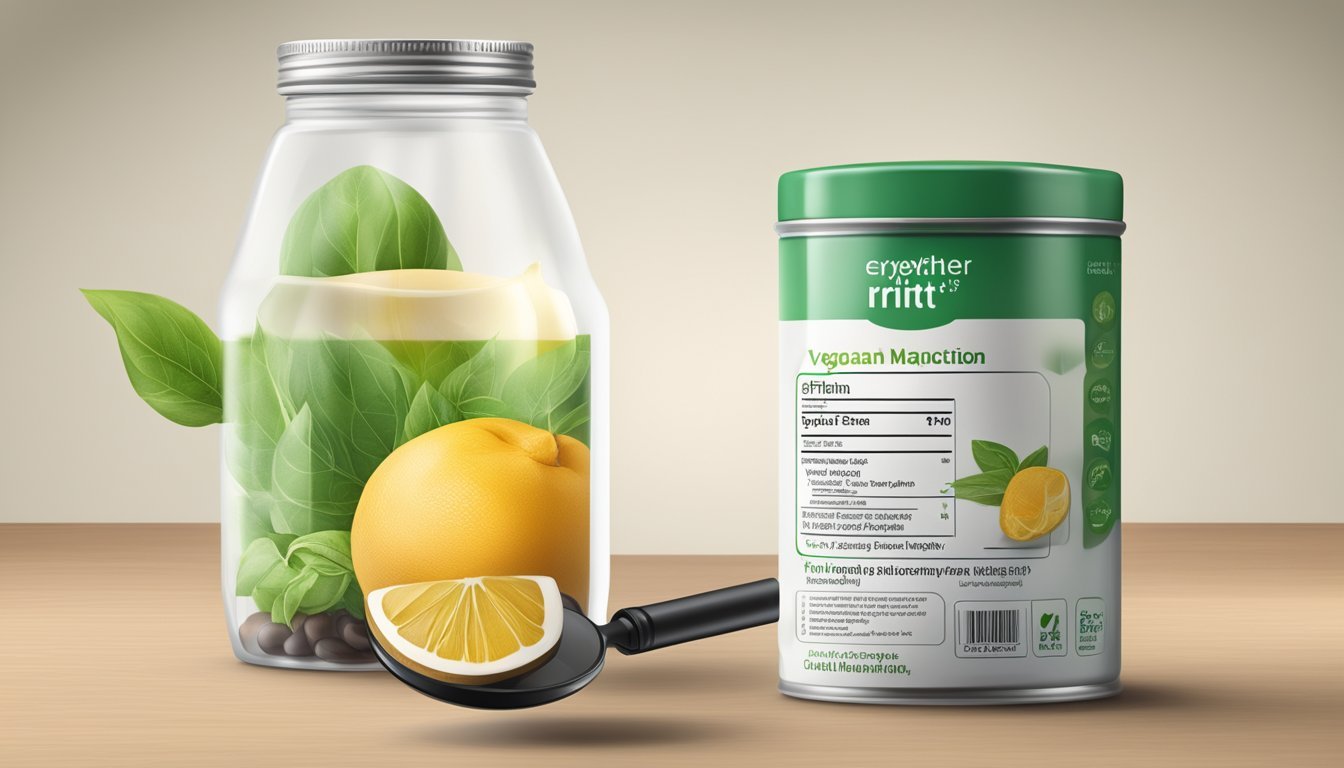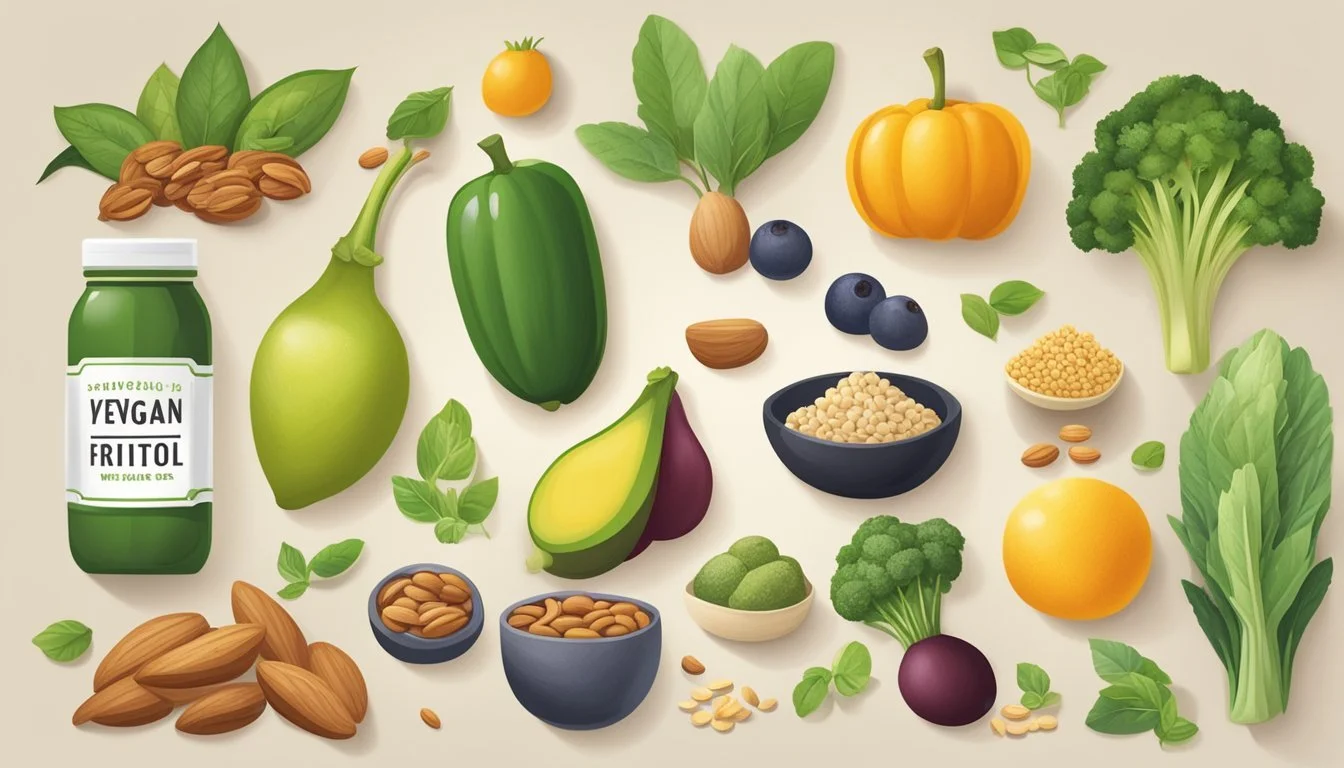Is Erythritol Vegan?
Unveiling the Truth About This Sweetener
Erythritol is a popular sweetener commonly found in a variety of low-sugar and sugar-free foods and beverages. It belongs to a class of compounds known as sugar alcohols or polyols, which are derived from natural sources like fruits and vegetables or produced industrially from starches. Due to its source versatility, erythritol is often considered suitable for vegan diets. However, to ensure compliance with vegan standards, it is important for consumers to verify the production process and look for certifications or labels that clearly indicate the product is vegan.
Vegan consumers make food choices based on the principle of avoiding animal products and by-products. In the case of erythritol, its vegan status can be influenced by the manufacturing processes, which sometimes involve animal-derived substances. When erythritol is industrially produced, it generally undergoes a fermentation process using microorganisms. These microorganisms are fed with glucose derived from plant starches, such as corn, which would generally not compromise its vegan status.
Despite being plant-based, not all erythritol products might adhere strictly to vegan principles. Cross-contamination with non-vegan items or the use of genetically modified organisms (GMOs) may be a concern for some vegans. To cater to this, many brands provide erythritol that is certified vegan and non-GMO, ensuring that the product aligns with a stricter interpretation of veganism. These certifications help consumers easily identify suitable erythritol products and integrate them into their vegan lifestyle with confidence.
What Is Erythritol?
Erythritol is a sugar alcohol, which is a type of carbohydrate and does not contain ethanol, commonly known as alcohol. It occurs naturally in some fruits and fermented foods, (What wine goes well with fermented foods?) but the erythritol used as a sweetener is industrially produced by fermenting glucose with yeast or fungi. Erythritol has about 70-80% of the sweetness of table sugar (sucrose) yet contains virtually no calories, making it a popular choice in low-calorie and sugar-free products.
Unlike sugar, erythritol does not contribute to tooth decay and has a minimal impact on blood sugar levels, which is beneficial for individuals with diabetes and those monitoring their blood glucose. Its low-calorie content also makes it attractive for weight management.
The physical properties of erythritol are similar to those of sugar, which means it can be used to provide bulk and texture in foods and beverages. It also exhibits a cooling effect on the palate when dissolved, which is characteristic of sugar alcohols.
In the context of a natural sweetener, erythritol is considered one because it exists in nature and its production mimics a natural process. However, like other sugar alcohols, it can lead to digestive discomfort if consumed in large quantities due to its incomplete absorption in the intestines.
Property Erythritol Sweetness 70-80% as sweet as sugar Caloric Content Virtually none Impact on Teeth Does not cause decay Glycemic Index Minimal impact on blood glucose Natural Occurrence Found in fruits and fermented foods Common Use Sweetener in low-calorie and sugar-free products
Erythritol stands out as a versatile, tooth-friendly, and low-glycemic alternative to sugar.
Erythritol Source and Production
Erythritol is a popular sugar alcohol and sweetener which appeals to vegans due to its plant-based origins and cruelty-free production process. Its production involves two main stages—sourcing the raw material and fermentation.
Natural Sources
Erythritol is naturally found in small quantities within fruits. However, these levels are not sufficient for economical extraction. The commercial production of erythritol typically turns to corn or wheat as the primary raw materials due to their abundant availability and high glucose content, which is crucial for the fermentation process.
Fermentation Process
The industrial production of erythritol is mainly achieved through a fermentation process. This involves using a yeast or fungal culture to ferment glucose-rich substrates derived from natural sources:
Corn: Most erythritol is produced from cornstarch. The starch is first enzymatically treated to break down into glucose.
Fermented Foods: Although not used as a source for industrial extraction, erythritol occurs naturally in fermented foods like soy sauce, wine, and cheese.
During fermentation, microorganisms convert glucose into erythritol. After fermentation, the erythritol is purified to eliminate any remaining impurities or by-products. This process is eco-friendly and sustainable, ensuring that the erythritol produced is vegan and suitable for consumption by individuals following a plant-based diet.
Nutritional Profile of Erythritol
Erythritol stands out in its category due to its unique nutritional attributes which include a virtually zero calorie content and no significant impact on blood glucose levels, making it an appealing choice for sugar-free and low-carb diets.
Caloric Content
Erythritol is known for its low-caloric value. Unlike other sugar alcohols, erythritol boasts essentially zero calories. While most sugar substitutes have calories that contribute to daily intake, erythritol possesses a negligible caloric impact, imparting roughly 0.2 calories per gram. This is remarkably less than the 4 calories per gram found in table sugar.
Carbohydrate Comparison
In the context of carbohydrates, erythritol presents an interesting case. It is classified as a carbohydrate specifically a sugar alcohol, but it differs significantly from other carbohydrates due to its minimal effect on blood glucose levels. When assessing nutrition facts, it stands out that while erythritol contains about 4 grams of carbohydrates per teaspoon, these carbohydrates do not have the typical metabolic outcome associated with other forms of carbohydrates. They do not contribute to any increase in blood sugar or insulin response, affirming erythritol's status as a sugar-free and low-carb natural sweetener.
Is Erythritol Vegan?
Erythritol is a sugar alcohol widely used as a low-calorie sweetener, and it raises a significant question for those adhering to a vegan lifestyle. Vegans actively avoid animal-derived products, and determining the vegan status of food additives such as erythritol is important to adhering to such a diet.
Production Process: Erythritol is produced through a natural fermentation process. The typical source for fermenting erythritol is glucose derived from plant-based sources, principally corn. Fermentation, akin to that in yeast bread, utilises microorganisms such as yeast or fungi. These microorganisms are not considered animal-derived and are acceptable in a vegan diet.
Considerations:
Animals: Erythritol production does not involve animals or animal byproducts.
Plant-based Sources: The glucose used is derived from plants.
Fermentation: Utilizes microorganisms, not animals.
Natural Aspect: Erythritol is often touted as a naturally occurring compound, found in fruits and fermented foods. While commercial production is more controlled and large-scale than this natural occurrence, the end product is chemically identical.
In summary, erythritol can generally be considered vegan, as it does not involve any animal products or byproducts in its production, and it is derived from natural, plant-based sources. This makes it suitable for individuals following a vegan or plant-based diet.
Health Implications of Erythritol
Erythritol, a sugar alcohol, influences health in multiple ways, specifically affecting blood sugar levels, digestion, and dental health. Its use as a sweetener in various foods has raised questions about its benefits and potential side effects.
Impact on Blood Sugar Levels
Erythritol appears to have a minimal impact on blood sugar levels, which can be particularly beneficial for individuals with diabetes. Unlike sugars that can cause a spike in insulin and blood sugar levels, erythritol does not tend to affect glucose or insulin levels significantly. Studies have shown that its consumption does not lead to the same blood sugar spikes as seen with regular sugar, making it a potential alternative for those monitoring their blood sugar levels.
Digestive Considerations
While erythritol is generally well-tolerated, some individuals may experience digestive issues such as gas and bloating. This is due to erythritol’s inability to be fully absorbed by the body, leading it to ferment in the large intestine. However, compared to other sugar alcohols like xylitol and sorbitol, erythritol tends to have a higher threshold before such side effects occur and is therefore considered to have a higher digestive tolerance.
Dental Health Benefits
One of the notable benefits of erythritol is its contribution to dental health. It is non-cariogenic, meaning it does not contribute to tooth decay. In fact, erythritol can actively help prevent cavities by inhibiting the growth of bacteria that cause tooth decay. As such, it is often found in sugar-free dental care products and is promoted for its oral health advantages.
Erythritol in a Vegan Diet
When considering sweeteners suitable for a vegan diet, it is essential to understand which options align with plant-based principles. Among various choices, erythritol emerges as a prevalent and fitting alternative for those following a vegan lifestyle.
Vegan Sweetener Options
Erythritol is a sugar alcohol that is commonly found as a granulated or powdered sweetener in low-sugar and sugar-free products. Because its manufacturing process generally does not involve animal products or byproducts, erythritol is indeed vegan-friendly. This sweetener is a practical choice for vegans seeking to reduce their sugar intake without relying on animal-derived substances.
Plant-based Sweeteners: Vegans often seek natural sweeteners, and erythritol fits the bill as it originates from plant sources.
Artificial Sweeteners: While some vegans use artificial sweeteners, there is debate about their health effects and environmental impact. Erythritol, however, is one that is not only vegan but also has a favorable digestive tolerance profile.
Sugar Alternatives: Erythritol is among the preferred sugar alternatives for those on a vegan diet due to its vegan status and lower calorie content.
A vegan diet promotes the use of ingredients produced without animal involvement. Erythritol stands out as a sweetener that satisfies this condition, providing an agreeable taste and versatility for various culinary applications without compromising vegan ethics.
Comparing Erythritol to Other Sweeteners
Erythritol, a sugar alcohol, offers a low-calorie alternative to sugar while providing sweetness. This section explores erythritol's characteristics compared to other common sweeteners, including natural and artificial varieties, as well as its counterparts within the sugar alcohol family.
Natural and Artificial Sweeteners
The sweeteners on the market can be broadly categorized into natural and artificial options. Natural sweeteners like stevia are derived from plants and often contain little to no calories. Stevia, specifically, is much sweeter than table sugar and can be up to 300 times sweeter. On the other hand, artificial sweeteners are synthesized and include sucralose, which is a no-calorie sweetener used in many sugar-free products.
Sweetener Type Example Source Relative Sweetness to Sugar Caloric Content Natural Stevia Plant-derived Up to 300x Zero calories Artificial Sucralose Synthesized About 600x Zero calories Sugar Alcohol Erythritol Fermentation 70-80% Very low
Sugar Alcohols Comparison
Among sugar alcohols, erythritol has a distinct advantage due to its minimal calorie content and low glycemic impact, making it suitable for diabetics and those following a low-sugar diet. In contrast, xylitol, another sugar alcohol, is similar in sweetness to sugar but has a higher calorie content and can raise blood sugar levels.
Erythritol:
Calorie content: 0.24 calories per gram
Glycemic index: 1
Xylitol:
Calorie content: 2.4 calories per gram
Glycemic index: 7-13
Both erythritol and other sugar alcohols like xylitol are considered to be sugar substitutes and are often found in low-sugar or sugar-free products. However, erythritol's lower caloric impact and glycemic index make it an appealing option for health-conscious consumers looking for a sweetener that doesn't compromise their dietary preferences.
Culinary Uses of Erythritol
Erythritol serves as a versatile low-calorie sweetener in various culinary applications due to its sugar-like taste and heat stability.
Baking and Cooking
In baking, erythritol is prized for its ability to create sweet treats that are low in calories without compromising on texture and flavor. It is particularly useful for individuals adhering to a ketogenic diet or those monitoring their sugar intake. Erythritol can be incorporated into an array of recipes including cookies, cakes, and pastries.
Cookies: Provides sweetness without the added calories, often combined with almond flour or coconut flour.
Cakes: Acts as a sugar substitute that retains moisture similar to that of sugar when baking.
Pastries: Can be used in pie fillings and toppings to decrease the sugar content while maintaining the expected sweet flavor profile.
It also works well in the creation of sugar-free candies, where it mimics the crystalline structure of table sugar, thus maintaining a pleasant mouthfeel and avoiding the laxative effects often associated with other sugar alcohols.
Beverages
As a sweetener in beverages, erythritol's solubility makes it an excellent choice for both hot and cold drinks. It dissolves well in coffee and tea, providing a sweetness akin to that of sugar without the calories. In cold beverages such as smoothies or cocktails, it maintains sweetness without impacting the overall flavor profile or causing unwanted aftertastes.
Coffee/Tea: Erythritol easily integrates into hot beverages without altering the drink's intended flavor.
Smoothies: It adds sweetness to fruit-based beverages without increasing the caloric content.
Cocktails: Useful in low-calorie or ketogenic cocktail recipes as it does not contribute to the carbohydrate count.
In conclusion, erythritol's utility stretches across a broad spectrum of culinary uses, offering a sugar-like taste while catering to dietary preferences that require low or no sugar intake.
Labeling and Availability
When purchasing erythritol, consumers should be informed about how to identify it on product labels and understand where they can buy this popular sugar substitute. The labeling will indicate whether the erythritol is in granulated or powdered form and may also include certifications regarding gluten-free status.
Identifying Erythritol on Labels
Consumers can identify erythritol on product labels by looking for its name in the ingredients list. Erythritol is typically listed as:
Erythritol
Sugar alcohol (as erythritol is one of them)
Additional labeling considerations may involve certifications such as:
Vegan: Indicating no animal-derived ingredients
Gluten-Free: Ensuring it is safe for those with gluten sensitivities
Where to Buy Erythritol
Erythritol is available at a variety of retail locations, both physical and online. Shoppers can find erythritol in:
Health food stores: Stocked alongside other sugar alternatives
Supermarkets: Located in the baking aisle or with sugar substitutes
Online retailers: Offering a wide range of brands and product sizes
Potential Side Effects and Considerations
While erythritol is a popular sugar substitute among vegans, it is important to consider potential side effects associated with its consumption, particularly concerning gastrointestinal health and individual sweetener sensitivities.
Gastrointestinal Issues
Erythritol may lead to gastrointestinal issues such as gas and bloating in some individuals. These effects stem from the body's inability to fully absorb sugar alcohols, which can result in stomach upset. Diarrhea can also occur, especially when erythritol is ingested in large quantities.
Sweetener Sensitivities
Sensitivity to sugar alcohols varies from person to person. Some may experience no adverse effects, while others may have various degrees of sensitivity to erythritol, manifesting as gastrointestinal discomfort or other related symptoms. To minimize risks, consumers should be attentive to how their bodies respond to erythritol and adjust their intake accordingly.
Environmental and Ethical Considerations
In the context of erythritol, environmental and ethical considerations predominantly involve its sustainability as a sweetener and the welfare of animals in its production process.
Sustainability of Sweeteners
Erythritol is a sugar alcohol used as a low-calorie sweetener, which can be derived from plant starches. Its production can be deemed as sustainable compared to conventional sugar, primarily due to the lower requirement of agricultural land and water. However, one must consider the overall life cycle of the product, from the source plant to the final sweetener, to fully assess its environmental footprint.
Animal Welfare
When examining erythritol from an animal welfare perspective, it is crucial to establish that the production process does not harm animals or involve animal-by products. For a product to be classified as vegan, it must exclude any form of animal exploitation or cruelty. This means that for erythritol to be considered vegan, it should be certified free from any animal derivatives or testing, aligning with the principles of ethical veganism and plant-based consumption.
Conclusion
Erythritol is recognized as a vegan-friendly sweetener. Derived primarily from plant sources such as corn, it does not involve animal products or byproducts in its production process. Health-conscious consumers, especially those adhering to a vegan diet, may choose erythritol for its low-calorie content and dental benefits, as it does not contribute to tooth decay.
Health Benefits of Erythritol:
Low Calorie: Offers almost no calories, making it suitable for weight management.
Dental Health: Does not cause tooth decay and may actively prevent it.
As a sugar alcohol, erythritol is also well-tolerated by the body compared to other sugar alcohols, minimizing the risk of gastrointestinal discomfort. Its status as a vegan product, combined with its health benefits, renders erythritol a commendable choice for those seeking alternative sweeteners. It is advisable, however, for consumers to consider individual health needs and dietary restrictions.



